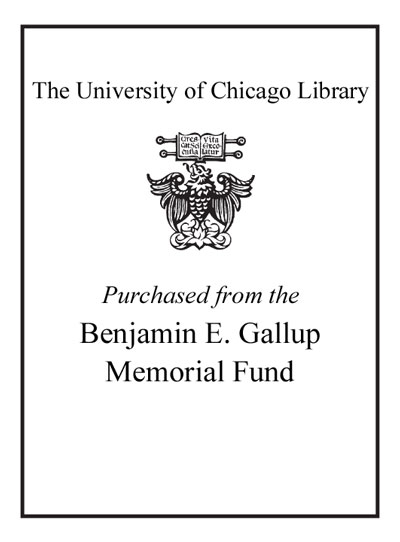Review by Publisher's Weekly Review
Kit Carson (1809-1868) and John Fremont (1813-1890) are not generally regarded as a pair the way Lewis and Clark are in terms of exploring new territory. Indeed, Carson and Frmont are only teamed in two of the four expeditions recounted by Roberts in his stirring tale of the opening of the American West. But the author makes a strong case that the two explorers contributed as much as anybody to America's westward movement. Of the four expeditions described by Roberts (Escape Routes, etc.), a frequent contributor to Outside and other magazines, two are the most intriguing: Fremont and Carson's 1845-1846 excursion into California, which played a major role in the U.S. taking control of that territory from Mexico, and Fremont's 1848-1849 trek that began as a search for a railroad path through the Rockies, but ended in disaster. Roberts has such a tremendous feel for his subject that it is disappointing that he didn't devote more space to Fremont's role in California's Bear Flag revolt. But the ground Roberts covers captures the beauty and harshness of life on the frontier in a vivid and passionate style. The treatment of Native Americans during America's march west is another prominent story line: while Roberts is quick to criticize the nation's Indian policy, he puts it in the context of the times. With Carson and Fremont surrounded by a cast of colorful characters, Roberts delivers an engrossing story of a period in American history when explorers never knew what they would find around the next bend in the trail. (Jan.) (c) Copyright PWxyz, LLC. All rights reserved
(c) Copyright PWxyz, LLC. All rights reserved
Review by Library Journal Review
John C. Frmont, an explorer and later a Civil War figure, began his first expedition in 1842 to map out the Oregon Trail. In St. Louis, preparing for his trip, Frmont hired Kit Carson as his chief scout. Carson was as taciturn as Frmont was flamboyant, yet they developed a respect for each other. Throughout the next 12 years, Frmont and Carson probed the West on a variety of expeditions. Frmont's adventures were carefully recorded by his wife, Jessie, whose accounts made him a hero and earned him the title "Pathfinder." Carson, however, was an illiterate mountain man whose brief autobiography was devoid of pretense and description. Roberts, who has authored six books and numerous articles that have appeared in magazines such as the Atlantic Monthly, explores the relationship between these two men in delightful detail while at the same time painting a vivid picture of life in the mid-1800s American West. Recommended for academic and large public libraries.ÄGrant A. Fredericksen, Illinois Prairie Dist. P.L., Metamora (c) Copyright 2010. Library Journals LLC, a wholly owned subsidiary of Media Source, Inc. No redistribution permitted.
(c) Copyright Library Journals LLC, a wholly owned subsidiary of Media Source, Inc. No redistribution permitted.
Review by Kirkus Book Review
A vigorous narrative of the intersecting lives of two of the most outsized figures in the American West: the trapper, guide, and Indian fighter Kit Carson, and the ebullient, grandstanding officer John Frmont. Roberts (Once They Moved Like the Wind: Cochise, Geronimo, and the Apache Wars, 1993, etc.) has focused on four revealing events in the lives of these two figures: the 1842 Frmont expedition, which reached as far as Wyoming; the conquest of California in 1845'46, which often verged on slapstick; a disastrous surveying expedition led by Frmont in 1848 during which almost a third of his men died; and Carson's 1863 campaign to round up and relocate the Mescalero Apache and the Navajo. Largely unknown before Frmont hired him to guide his 1842 expedition, the taciturn Carson was already an extraordinary outdoorsman, having spent more than a decade wandering thousands of square miles of the still largely unknown West. Though the mountain man was modest about his remarkable travels, and Frmont was a dashing self-promoter, they were both tough, courageous figures. Carson served with Frmont on three expeditions, mapping an astonishing amount of Western territory under conditions of often extreme hardship. Their collaboration concluded with Frmont's ill-planned, ramshackle, yet ultimately successful attempt to expel Mexican forces from California. His improbable triumph propelled Frmont into a long, bumpy political career. Carson, looking back on his role in the defeat and confinement of the Apache and Navajo on a destitute reservation, where many died of disease or starvation, became an unlikely spokesman for Indian rights. Roberts, who has researched these events with exemplary thoroughness, writes with vigor and clarity, and makes a careful argument for viewing these men, and the events he chronicles, as emblematic of the exploration and settling of the West. A thoughtful, engaging, and useful addition to the shelf of recent revisionist works on the American West. (8 pages photos)
Copyright (c) Kirkus Reviews, used with permission.
Review by Publisher's Weekly Review
Review by Library Journal Review
Review by Kirkus Book Review

